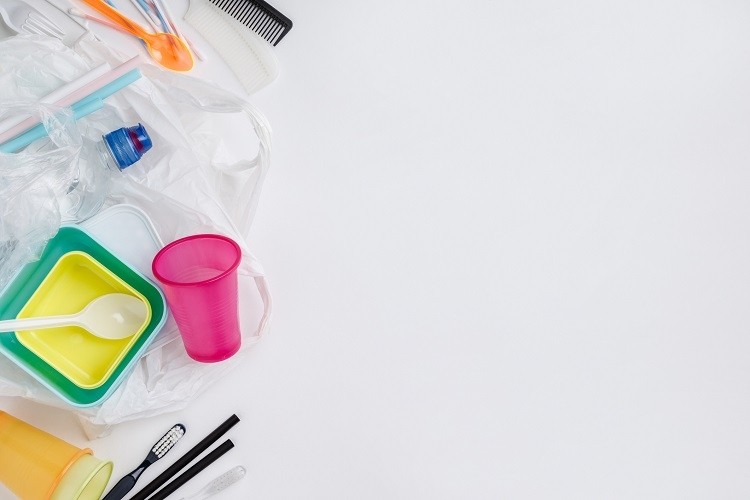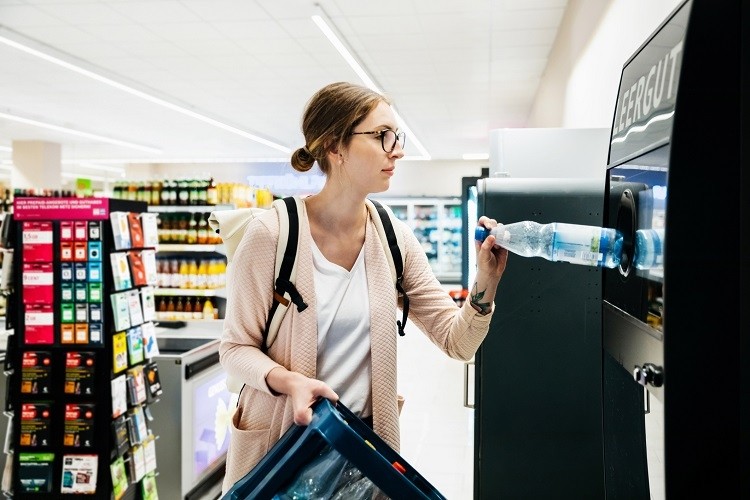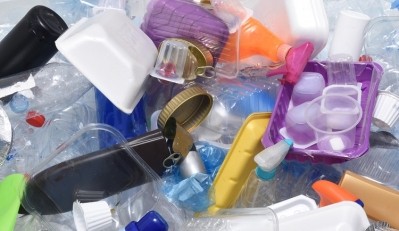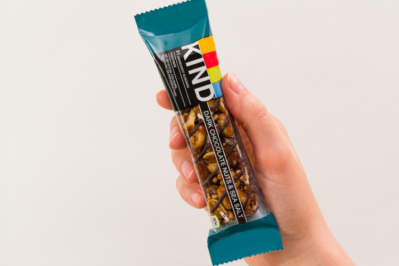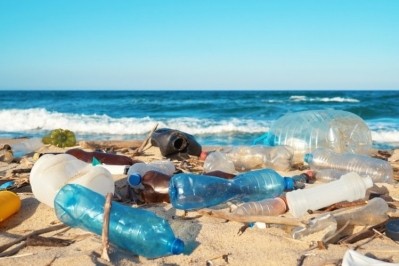Reduce, recycle, rethink: Why industry backs three-pronged remedy to plastic problem
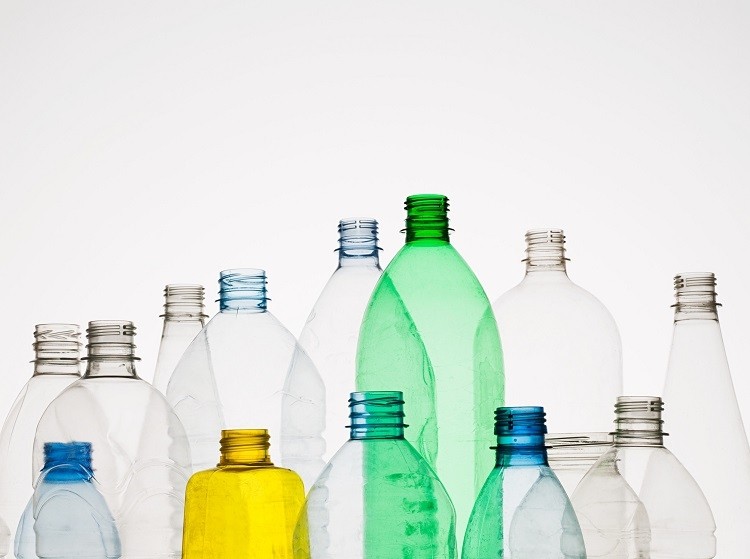
Plastic has many advantages in the food and beverage industry. It keeps food safe and fresh; and is cheap to produce, readily available, durable, and versatile.
However, plastic pollution is a major concern. “Plastic has no place in the environment,” stresses Ignacio Gavilan, Director of Sustainability at The Consumer Goods Forum (CGF). “That’s the trick.”
So what’s the solution? How can the food and beverage sector continue to use plastic, while stamping out plastic pollution?
A deep-running issue
The world is producing twice the amount of plastic than two decades ago. According to the OECD, most of it is ending up in landfill, incinerated, or leaking into the environment.
Indeed, an estimated eight million tonnes of plastic enters the marine environment every year. And the amount of plastic in the ocean is expected to double in the next 15 years: if trends continue, there could be more plastic in the ocean than fish.
According to Gavilan, the packaging that is ‘most visible’, which we see in ‘startling images’ of polluted waterways, is just one phase of the problem. “The issue runs much deeper than that,” he told delegates at FoodNavigator’s Climate Smart Food event. “And if we are to tackle it, action from big businesses must be carried out in collaboration with local and national government, and of course the public…”
Collaboration is also essential to Refresco Group’s vision to tackling plastic pollution. According to Minna Lyiynen, who heads up sustainability at the world’s largest independent bottler, combatting plastic pollution requires a three-pronged approach: reducing, recycling and rethinking – which can be achieved by bringing business, policymakers, and consumers onboard. “It sounds very simple, but we believe it works.”
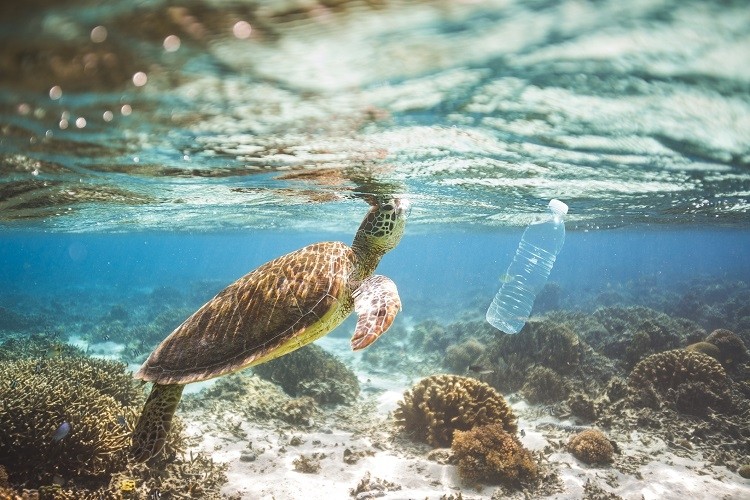
Plastic reduction has been a key focus for Refresco for ‘many years’. It can be achieved by reducing the amount of plastic in polyethylene terephthalate (PET) in bottles and closures – via lightweighting – for beverage packaging, Lyiynen explained.
“But it doesn’t stop with primary packaging, [it also means] reducing the use of unnecessary transport packaging – for example, switching from shrink film to returnable trays.
“Those are great examples of how we can reduce the use of virgin plastics.”
Thinking outside the bottle
Rethinking plastic is also an integral tool in tackling the plastic problem. For CGF’s Gavilan, current packaging design is a limiting factor in recycling capabilities.
“One of the reasons plastic packaging ends up in nature is because of the complexity of the recycling process, which can be complicated by poor packaging design – [essentially] lots of problematic elements with the packaging and of course, the excess packaging: the wrapping over wrapping, over triple wrapping…”
Companies are investing in alternative materials, but ‘greater urgency’ is required across the industry to tackle this issue of poor design. “Important design changes should become the norm in the next few years.”
Refresco also acknowledges its responsibility in rethinking plastic. “We see it as a responsibility to find those new solutions,” said Lyiynen at the event. “For instance, we see potential in plant-based plastic, which…needs to be…reused or recycled.
“There is a real solution in…finding those new alternative solutions.”
Recycling and collection
Recycling must also be part of the solution, agreed both CGF and Refresco.
According to the OECD’s Global Plastics Outlook, just 9% of the plastic produced today is successfully recycled. This makes it tricky for beverage makers to increase the amount of recycled content in their bottles.
“For us, recycling means using more recycled content in our beverage packaging, but also ensuring that the packaging gets recycled,” explained Refresco’s sustainability lead.
Design here is also crucial. “We have been taking out colours in plastic bottles for the products we manufacture for our customers across our business,” said Lyiynen, offering up an example of how ‘rethinking’ plastic can encourage recyclability.
Ensuring enough recycled content is available to bottlers and manufacturers remains an issue, however. Achieving circularity in plastic is possible, believes Lyiynen, but a key hurdle stands in the way: collection. “Specifically for beverage bottles, we see this as one of the bottleneck challenges we need to overcome.”
Refresco is an advocate for deposit return schemes, whereby consumers pay a small deposit when you buy a drink in a single-use container, and get the deposit back when they return the empty bottle or can. Scotland is preparing to bring in such a scheme next year with a 20p deposit.
It has been demonstrated in ‘several markets’, including in Europe and the US, that a ‘well-functioning’ deposit return scheme delivers ‘high return rates’, said Lyiynen, “which is great, because then producers can have that bottle-to-bottle loop.” Indeed, according to the sustainability expert, industry-run deposit return schemes have proved ‘very successful’, delivering upwards of a 90% collection rate.
“Without such separate collection and deposit return schemes, often the food grade plastic never comes back to food grade packaging…
“We firmly believe that by setting up such separate closed looping is key for the circular economy of plastics”.
A question of responsibility
As to who should take responsibility for implementing such schemes, Refresco is supportive of industry-led approaches.
This is the case in Scotland, where the deposit return scheme is being delivered by Circularity Scotland Ltd., an industry-led body representing drinks producers, retailers and trade bodies of all sizes. According to the Scottish Government, this business-led approach is common among many of the most successful schemes in Europe, including in Denmark, Finland, and the Netherlands.
“We believe that organising collection through deposit systems can be industry led and it can deliver the environmental results that we are looking for, but also support industry access to recycled content,” said Lyiynen.
As CGF’s Gavilan explained, extended producer responsibility (EPR) schemes see some or all of the responsibility for packaging waste transferred from governments to producers – for the most part consumer goods companies and retailers. Here, producers help to ‘fill the financial gap’, he told delegates.
For extended producer responsibility schemes to prove effective, consumers must be on board. There is benefit here for producers too, suggested Gavilan.
“The moment consumers support the proper collection [of plastics], the cost goes down dramatically. Deposit return schemes [are] fantastic. You have the consumer doing the job.
“Otherwise, you need a facility to separate the rigids, the flexibles, the PETs…it becomes very complex. If we have the citizen helping with this, which means completely changing some of the behaviours we have today…it makes a big difference.”
Of course, changing consumer behaviour is no easy task. The trend for convenience ‘needs to be thought through’. “But if we do our part, which might require a bit of sacrifice, it’s fantastic.”
The panellists were also joined by packaging company Huhtamaki, Australian start-up Great Wrap, and Foodbytes! by Rabobank at Climate Smart Food. You can read how innovators are addressing the plastic problem HERE.
